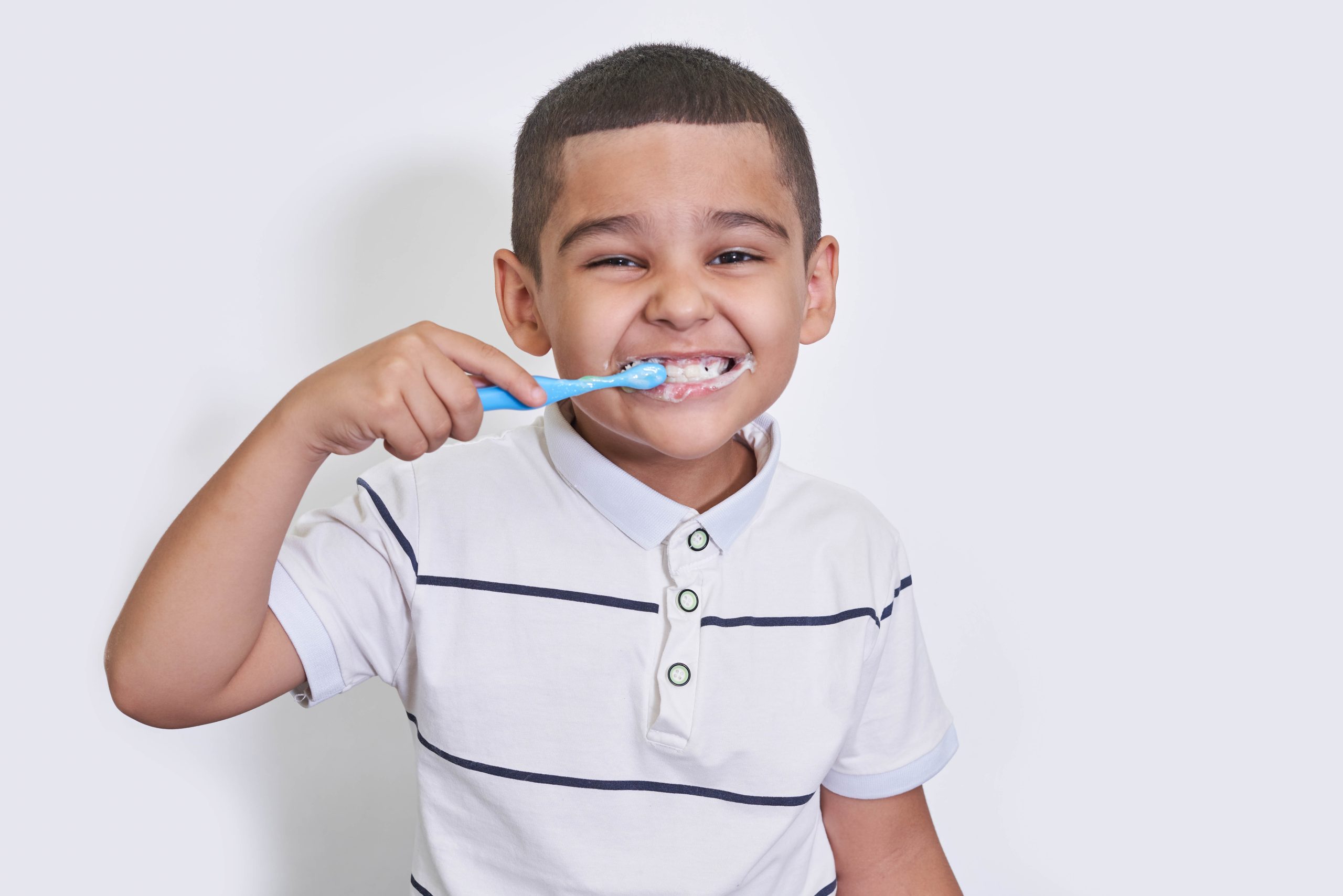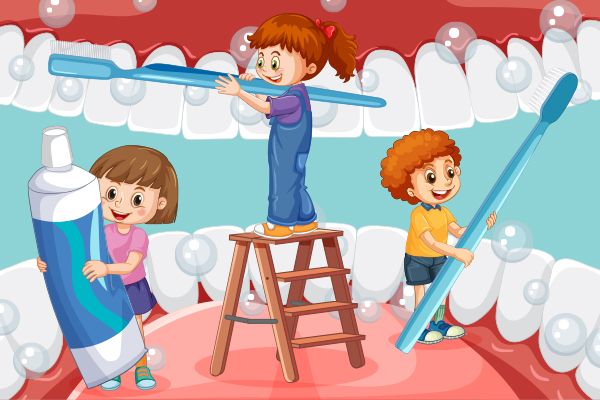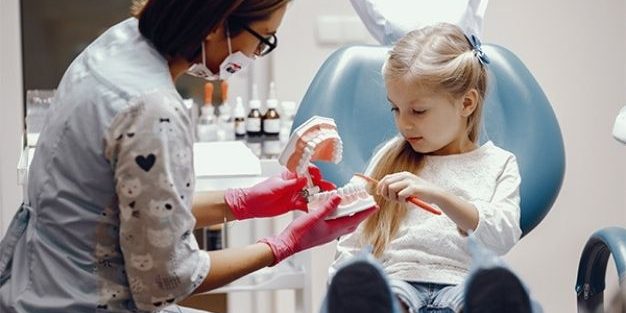Parenting is an emotional bond between mother and child as we consider the mother the first guru to the child. Mother teaches innumerable things to the child to be safe and secure in their growth for the rest of their life. As parents, mom and dad share responsibilities and mark memories to the child from day one.
Teaching your kid to brush is no less than a battle for any parents as they should concentrate on various points while upbringing the child. The most common actions of parents are making the child adopt healthy practices such as brushing, bathing, and cleaning hands and legs after returning home.
While raising your child, taking care of their oral health starts with proper tooth brushing habits as it’s neither too early nor too late to start. Hence, find the tips you need to teach them how to brush their teeth. Ensure that your child knows about good oral hygiene, which is essential for the rest of their lives.
Here is thing you should not compromise on: Brushing teeth. According to the researcher’s new analysis, good oral habits such as brushing, flossing, and healthy practices may prevent cognitive impairment.
Cleaning the teeth and the benefits of oral health is essential regularly. Taking care of your teeth and gums is easy if you practice having dental visits along with brushing and cleaning your teeth at intervals. There is a saying that “an important oral hygiene practice” is one of the best sources of oral hygiene.
Questions Rolling in Mind about Brushing
How Best We Clean Teeth? How many times should your child brush?
The ideal time for cleaning the child’s teeth is during morning and night. Your child’s oral health is safe as long as you brush and sanitize their teeth as a thorough job. It doesn’t matter when and how many times your child touches. To obtain better dental care, pick a time of day for a couple of minutes when you can devote to your children. Parents should convince kids to practice brushing in the morning as a priority, after lunch, and while going to bed, as they might have a comfortable sleep with a clean mouth.
Before motivating your child, you should keep in mind that ensuring the kids cleaning between teeth should not have to be painful. Your teeth should be safe, and upon hard brushing, you could damage the tissues, so be cautious. It is normal to feel discomfort while starting for the first time, but never give up and proceed. When done brushing gently, you might not be getting the food out of your teeth. If your child suffers discomfort for more than a week, talk to positive dental to get suggestions from your dentist.

Why do we Brush our Teeth?
Brushing teeth daily helps your child to remove plaque and regulate oral hygiene. But, educate your child that brushing alone doesn’t cut the addition of plaque on your mouth that a toothbrush can’t reach. These include under the gums and in between the teeth. In addition, flossing supports:
- Removal of debris on teeth, and underneath of the gums
- Polish the tooth surfaces
- Control of bad breath
Tips for Dental Hygiene
Meanwhile, you might have hands-on experience in brushing your teeth as it lasts for decades. Teaching your kid to brush is not a cakewalk. Here are a few tips to demonstrate your kid how to brush with proper techniques:
- Start tooth brushing along with your child for easy understanding
- Run the toothbrush under the tap by counting one to three so that the child can feel enthusiastic
- Add small portions of toothpaste to your and your child’s brush and start brushing
- Teach your kid to hold the toothbrush 45-degree angle against the gumline
- Teach them to adopt small strokes by moving the toothbrush back and forth
- Teach them to begin from the gum line, and a brush is mandatory to clean the chewing surface in the mouth
- Teach them to clean the inside of the teeth with vertical strokes up and down
- Teach them to brush each tooth during every session of brushing, which lasts 2 minutes
- Teach them to brush the tongue upon the final brushing
- Teach them to rinse teeth with enough water after brushing to avoid excess toothpaste
In addition to the points mentioned above, consult a positive dental physician for better oral hygiene.

What Makes Tooth Brushing Fun?
At times children refuse to brush though you explain the need for healthy teeth and cleaning. Here are a few tips to make brushing fun.
Leading them by an Example: Well, most toddlers have skills to mimic parents often with love and use that point as an advantage to train your child by brushing together. This process makes your child watch you brushing, which makes it more interesting. On the other hand, you can simultaneously set an example. Funny memories can be caught, such as letting your toddler brush your teeth as a practice while you are busy brushing their teeth.
Sing while you Brush: Music adds fun to the child while brushing; make a habit to your child by singing simple lyrics which would be unique, which makes them encouraged while brushing
Engaged with games: In addition to the fun, you can add games or usage of apps or props such as dolls or a favorite toy or animal stuffed with teeth as they let your child brush. Using apps, one of the advantages is they play music by using characters from cartoons
Educate them to choose: Oral care is the most common practice, and your child should not take the convenience to skip or postpone brushing. Educate them to select their favorite brush or paste with their favorite color or character, making them feel like brushing. Offer them multiple meetings, which makes him curious to brush based on mood.
Offer Rewards: Children will be happier when motivated or encouraged for little things; hence, to boost them, create progress charts with their favorite stickers, which are advised to place once brushing. This activity makes them stay focused on the tasks, along with little motivation and rewards.
Conclusion
Educating kids about oral hygiene with fun is the parents’ motto to protect them from cavities and other dental disorders. The practice of oral health should be started from childhood by ensuring they care while they brush. It’s always advised to consult a positive dental physician when suffering from pain for longer periods.

